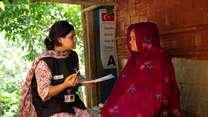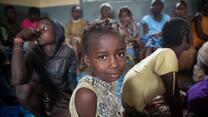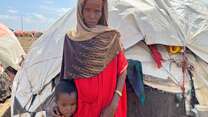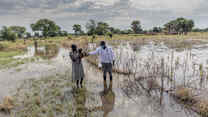Since 2017, we have been serving the most persecuted minorities in the world - the displaced Rohingya community who have taken refuge in Bangladesh. This crisis has become a protracted one and is impacting adversely in the lives of nearly 1.5 million Rohingya and the surrounding host communities in Cox's Bazar. We are responding with all our resources to improve our clients' health, education, protection, and skills so that they become resilient, resourceful, and capable of rebuilding their lives with the hope of a better future.
Along with the Rohingya crisis, Bangladesh has also become a climate hotspot, creating a risk of 15% land loss and internal displacement of nearly 30 million people from the coastal areas of Bangladesh imminently due to increasing temperature, consequential sea-level rise, and extreme weather events. In these circumstances, since 2022, we have been working in southern Bangladesh with national organizations to build the capacity of the local organizations towards resilience and support them in getting access to life-saving health, protection and education services.
Women, children, adolescents, persons with disabilities and special needs, and older adults need special attention and support to cope with this change. We are standing firm with them. This year, we could create positive impacts on the lives of 451,487 clients from the Rohingya camps, host communities, and southern Bangladesh, 68% of them are women and girls. We had presence in 31 camps and 27 host community locations in Cox’s Bazar.
We are seeking commitment from the UN nation-states, donor agencies, and international communities to build strong collaboration and ensure uninterrupted and sustainable funding for durable solutions to the Rohingya and climate crisis in Bangladesh.



